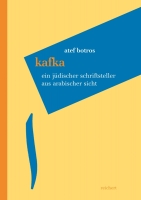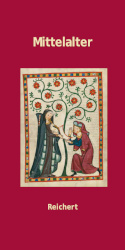Search
Kafka – Ein jüdischer Schriftsteller aus arabischer Sicht
2009
17.0 x 24.0 cm, 276 p., hardback
ISBN: 9783895006739
17.0 x 24.0 cm, 276 p., hardback
19,80 €
ISBN: 9783895006739
Short Description
The book is devoted to the subject of the Arab reception of Franz Kafka between 1939 and today. The study focuses on the examination of Kafka and his work in the form of intellectual reflective commentaries. It deals with the productive reception and presents modern Arabic literary works which were somehow inspired by or close to the writing of Kafka. The central question of reception as a process of cultural translation includes the preoccupation with Kafka’s Jewish affiliation in the context of the Jewish Arab conflict, tracing back the modern Arab history of thought with all its varieties via such indirect ways of reception.Description
„Atef Botros’ description and explanation of the Arab Kafka provides us with an enlightening characterization of the so called „crisis of Arab identity“ (…) I do not know of any similar profound access to the neurotic obsessions [e.g. Arab mental blockades in the reception of the Jewish] in the context of the „Jewish“ than his detailed analysis.“Prof. Georg Meggle (German Philosopher, Leipzig)
„The book warns of the decline of a long hermeneutical tradition into a literary discourse which is bound in political stereotypes. The writer wants to preserve the moments in which Kafka’s oeuvre is very close to the modern literary tradition of the Arab world and in which he became a source of progressive thought in Egypt.“
Galili Shahar, Haaretz, 29.09.2008
Regardless of skin color, religion, language and place, everyone feels close to this ill friend who lived in Prague, composed his work in German, but whose massage survived despite his early death; his name is Franz Kafka”, wrote the German Iraqi writer NaÊm WÁlÐ. In a poem of the Palestinian poet Mahmoud Darwish Kafka seems to be even closer to Arab reality: “I found Kafka sleeping under my skin, in accord with our garb of nightmare and the police in us”. The 1988 Nobel Prize holder, Naguib Mahfouz, wrote: “I have known Kafka for more than forty years, but I encountered (faced/met) him first particularly after the Arab defeat of 1967”.
Since 1939, in the Arab world Kafka’s oeuvre has been read, commented on, translated and quite controversially discussed: whether through identification, appropriation, literary inspiration, projection, misunderstanding, or politicization. But it is only in 1946 that he became more famous when the eminent Egyptian writer, Taha Husain introduced him to the public in a series of articles. His comments on Kafka can be conceived as a part of his secularization project.
While in the 1960s Kafka achieved a special significance in the Arab world, the east European polemic against him had been more and more exacerbated in the context of the Cold War. Stimulated by those polemics and in the course of the rising Arab anti-Zionism the question of Kafka’s attitude to Zionism arose from 1971 on. As a Jewish writer who was predominantly on the move among the Zionist circles of Prague, his reception became more complicated and difficult after the rise of the Middle East conflict.
This study is concerned with the entire history of reception, focusing on the significant contest of Arab intellectuals and beyond to point this reception in context of the modern Arab History of thought. In this respect the study can be considered part of a future-oriented research, which deals with exchange processes, the transfer of ideas, cultural translation, and overlapping and interference between Europe and the Arab area. However, these spheres are not considered opposites.
Biographical Note
Atef Botros, Dr. phil.since 2007 assistant professor at the Arabic Studies Department of the Center for Middle Eastern Studies at the University of Marburg (Germany), studied German Literature at the Heinrich-Heine University of Düsseldorf. In 2000, he completed his master thesis on “The 'Jewish' in the work of Frank Kafka”. Four years later he presented his doctoral thesis in the field of Comparative Literature, Arabic Studies and Cultural Studies on the Arab reception of Franz Kafka. From 2001 to 2004, he held a scholarship of the Heinrich-Böll Foundation. From 2003 to 2004, he was a staff member of the research group “Language, Identity, Collectivity: Language-Philosophical Transformations of Jewish Existence” at the Simon-Dubnow Institute for Jewish History and Culture, University of Leipzig. After his dissertation he worked as research fellow at the Georg Eckert Institute for international textbook research in Braunschweig. His main fields of research are modern Arabic literature and history of thought. His projects include issues like secularity, sacrality and violence in the modern Arabic novel as well as contemporary Arabic Literature as medium of collective remembrance.




 Preface
Preface

 Neuerscheinungen 2023/2024
Neuerscheinungen 2023/2024
 Gesamtverzeichnis 2023/2024
Gesamtverzeichnis 2023/2024
 Katalog Oriental Studies & Linguistics
Katalog Oriental Studies & Linguistics
 Mittelalter
Mittelalter
 Deutsche Inschriften
Deutsche Inschriften
 Musiktherapie
Musiktherapie
 Literaturen im Kontext
Literaturen im Kontext